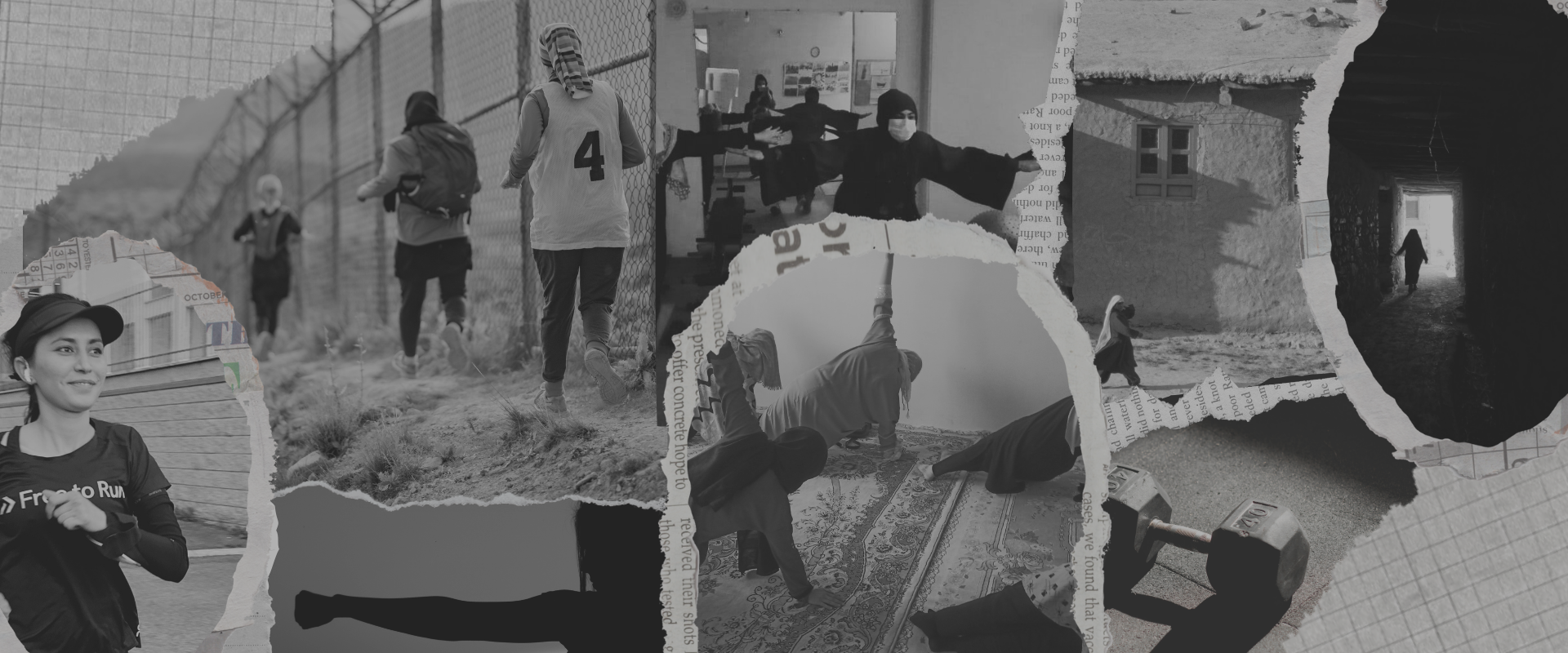
THE UNSEEN STRENGTH
OF AFGHAN WOMEN
Four years later, young women in our program are still resisting, even as global attention fades.
In 2021 the Taliban seized control of Afghanistan, triggering an egregious rollback of women’s and girls’ rights. Our programs, once thriving across five provinces, topped, and our staff were evacuated due to direct threats to their safety.
Women are banned from public life under Taliban rule, unable to work, study, play sport, or even speak outside the home. For many, the ability to move, to run, to play, to gather, was a vital source of joy and identity. That has been taken from them.
But the courage and determination of the young women we’ve worked with hasn’t disappeared. It evolved into something new. And while it might be unseen by the rest of the world, Afghan women are resisting every day.
The restrictions of life in Taliban-controlled Afghanistan haven’t stopped the incredible young women we work with from finding opportunities to run, to laugh, and to feel the fresh air in their lungs.
While we can’t share names, locations, or footage that would reveal identities, this audio captures the moment a group of young women found an opportunity to feel free.
Every moment like this is made possible by people like you who refuse to forget. Gifts from our incredible global community fuel the quiet acts of courage that allow Afghan young women to resist and move forward.
Co-created with our alumni, Omid (امید) is a clandestine initiative rooted in a belief that young women have a right to more than just survival. They deserve fulfilling and meaningful lives, including all the benefits of running and sport. Our Omid program:
Improves the mental health of young women
(with a focus on resilience)
Advances the leadership of young women
(focusing on communication and negotiation skills)
1.
2.
Retain the participation of young women in sport and physical activity
(indoor strength training, yoga, and when possible, secretly running and hiking outdoors)
3.
WHY THIS MATTERS
When Omid first began the need was clear: young women, isolated and denied their freedom, were suffering from severe mental health challenges. They had lost access not only to education and movement, but also to joy and connection. Many had known what it was to be free. The loss was crushing.
As the program grew, participants asked for skills to help them reclaim agency - tools to navigate relationships at home, in their communities, and even with the Taliban. In a context where legal rights are absent and safety is uncertain, communication and negotiation skills are critical.
Twice a week in carefully curated safe spaces - sometimes in person, sometimes online - groups of young women come together. Led by Free to Run trainers, they take part in trauma-informed sessions that pair physical activity with leadership and mental health skill-building. Movement and skill-development sessions work hand in hand, each strengthening the other.
This program keeps hope alive for young Afghan women and when attention fades, your support becomes a lifeline.
“Life in 2025 is very difficult for me. The streets feel scary, and we don’t feel safe as girls. I wanted to learn, grow, and help others but now, most of the time, I stay at home, afraid to go out. It’s painful, but I keep praying for better days. Even if I can’t go to school, I read at home, I teach my younger sisters, and I don’t want to give up.
Honestly, sometimes I feel forgotten. The world talks about Afghan women, but our lives don’t change. Still, when I hear kind voices from around the world, it gives me a little hope that we are not fully alone.”
WHY NOW?
The future of Afghanistan under Taliban rule is uncertain. What is clear is that women and girls have very little support on the horizon. Every day we wait is another day their voices go unheard.
Equipping young women with the tools to preserve their safety and positively influence their lives is critical - whether that’s delaying early marriage, negotiating family planning, or navigating public life under extreme constraints.
The young women in our program are still resisting, even as the world forgets. When you give to Free to Run, you join a global community standing in solidarity, showing Afghan women they are not alone.
PROGRAM IMPACT
Our end-of-year impact measurement from Afghanistan in 2024 showed that:
74% of participants experienced an overall improvement in their emotional well-being, and 70% reported a reduction in symptoms of anxiety and depression.
59% demonstrated an enhanced ability to recognize, understand, and manage their stress triggers, equipping them with the tools to navigate daily challenges.
89% of participants reported improved social support and a stronger sense of community.
31% of participants expressed increased optimism about their future and their ability to create change within their communities. While this is an important step forward, challenges persist, as 33% of participants still struggle with self-belief and 29% remain uncertain about their ability to attain the things they aspire to in life.
73% of participants reported an improvement in their physical well-being and 83% of participants reported a positive attitude toward physical activity.
66% of participants reported a positive attitude toward their bodies, recognizing their own strength and capabilities.
“It’s 2025. I don’t know how to describe what I feel anymore. Every day feels the same. I wake up, I breathe, I exist... but I don’t really live. In Afghanistan, life is not life. It’s survival. We have forgotten what peace feels like. Sometimes, I look at the sky and wonder... why do we always have to suffer, while the women of other countries live freely and safely? Every day, more doors close.”



